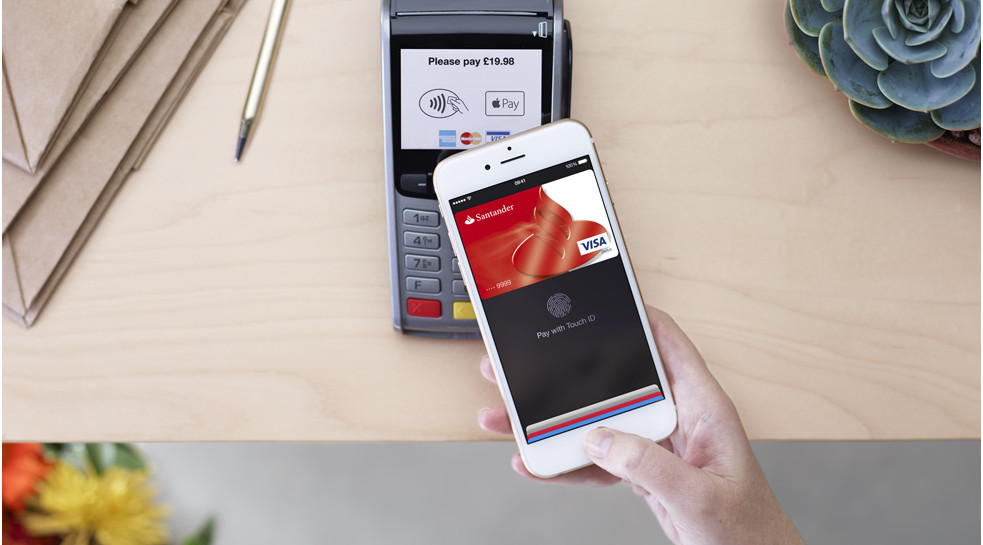

It’s now been just over two weeks since Apple Pay launched in the UK, opening up fast and simple mobile payments to millions of iPhone, iPad and Apple Watch users across the country.
But with more than 250,000 stores supporting Apple Pay, what are the issues behind implementing the technology and making sure it works correctly?
TechWeekEurope sat down with June Felix, President of Verifone Europe, one of the world’s leading electronic payments providers via its NFC-enabled Point of Sale (PoS) terminals. A key ally for any merchant looking to accept Apple Pay, the company is well placed to report back on exactly what challenges are facing the mobile payments industry in the UK.
“We’ve been getting very positive feedback so far,” Felix says, “and we’re getting a great response from the market.”
Verifone manages more than 100,000 payment terminals for merchants across the UK, and works with major companies such as Spar, Zizzi and TGI Fridays to make sure payments are no longer a hassle.
With Apple Pay, what the company is trying to do above all else, says Felix, is provide merchants with an easy way to accept mobile payments and benefit from the advantages it brings to them.
The technology can help create “a convenient consumer experience”, she says, especially in a tech-savvy market such as the UK, which has long been a supporter of new technologies.
Contactless payments are one such example of this, as UK consumers have taken to the service with aplomb, and Apple Pay is only set to expand that, as much like portable music players and smartphones, Apple’s brand becomes synonymous with a particular form of technology.
“Apple Pay is going to be the tipping point (for contactless payments)…now you have an incredibly credible brand that stands for innovation, that has made the consumer experience really convenient and exceptionally addictive,” Felix says.
“There have been other wallets, and some have been successful, and others haven’t been successful, the critical difference has always been the consumer.”
British banks are also well set to benefit from both Apple Pay and the UK’s strong ecommerce adoption, Felix says. She describes the current situation in Britain as the “perfect storm” for Apple Pay, as the country has the technology, consumer adoption and omnichannel interest from retailers, allowing British banks to project themselves as technologically advanced and appeal to tech-savvy customers – not too dissimilar from Apple fans.
Verifone had already played a major role in the US launch of Apple Pay last year, working with around 70 percent of the retailers that accepted the system, which gives them a working relationship with Apple many would be jealous of.
This relationship is only set to continue with the rollout of Apple Pay into Europe later this year, as Verifone benefits from its existing network of retailers across the continent to facilitate a smooth launch (with Felix revealing that her sources say Apple Pay will launch in Europe later this December).
And the company is also set to play a major role in the next edition of Apple Pay, which is set to launch later this year and have a big focus on customer loyalty schemes.
Felix says Verifone’s first retailer pilot using the new version will launch in the autumn, followed by six more by the end of the year, as Apple Pay looks to engage even more with its users.
Small and medium-sized business will also benefit hugely from this new update, she says, as they can connect to their customers and hopefully keep them coming back for more.
“Enabling loyalty programs is most important factor right now,” Felix says, noting that adding value-added services is a crucial way for SMEs to differentiate themselves from competitors, “they don’t want to be left behind.”
“Our whole strategy is to accept payments of all types,” says Felix (pictured left), “our guiding principle is to help the retailer take whatever forms of payments they want to take…including any type of wallet.”
This does extend to competing services such as Samsung Pay and Android Pay, both of which are set to launch later this year, and Felix feels that both can learn lessons from Apple’s example if they want to succeed.
“It’s complicated – people could never understand how hard payments are until they start to do it,” she says. “It’s nothing to do with money or intelligence – it’s figuring out what the business models are that make sense, and how to drive consumer adoption and understanding.”
All clued up on mobile payments? Try our quiz!
Italy, White House issue joint statement condemning 'discriminatory' tech taxes as US seeks to end…
Italian newspaper Il Foglio says four-page AI-generated supplement published every day for a month shows…
Huawei launches Titanium edition of Eyewear 2 smart glasses with gesture controls and AI-powered simultaneous…
Gerald Yin, founder, chairman and chief executive of key Chinese chip tools maker AMEC, drops…
Intel reportedly tells clients in China some of its AI chips will now require export…
New Intel chief executive Lip-Bu Tan flattens company's leadership structure as he seeks to end…